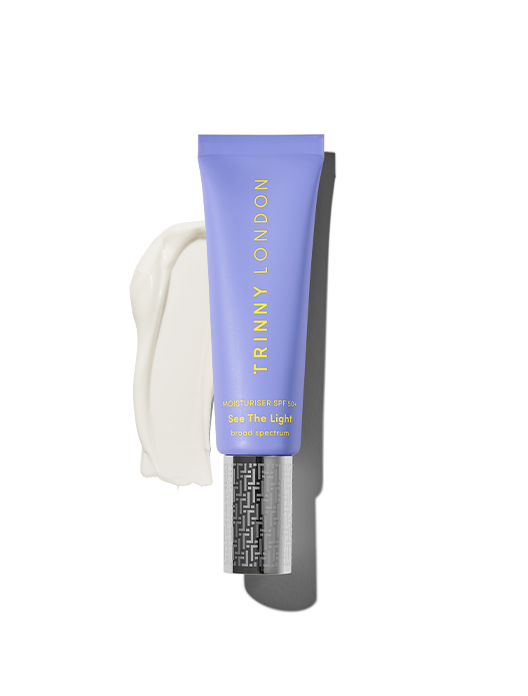
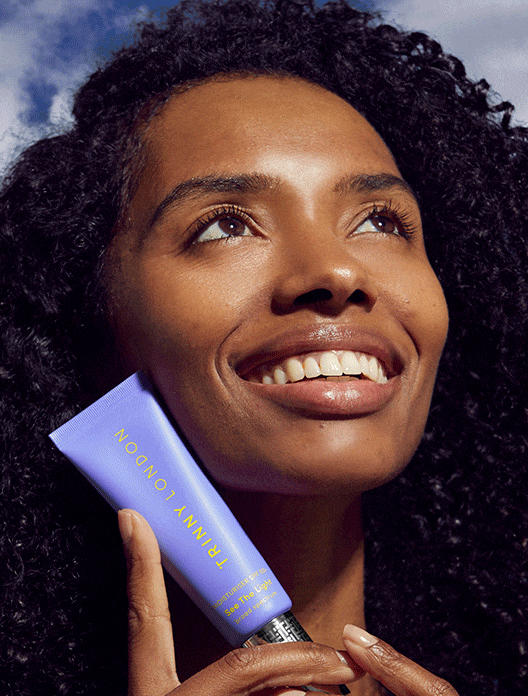
See The Light
Moisturiser with SPF 50 for hydrated, protected skin
Choose 3 free samples with every order

During pregnancy, our body is taking on functions it wouldn’t otherwise do. Alongside maintaining and prioritising your health, it is also growing and supporting your baby. These functions are fuelled in part by hormones, which, as we know, are one of the biggest culprits for skin changes – good or bad.
Let’s start with the good. That pregnancy glow we hear referred to time and time again? It’s very much a thing. “During pregnancy, the changes in our hormones, particularly the increase in oestrogen, increases blood flow to our skin,” explains consultant dermatologist Dr Justine Hextall. “It gives our skin that so-called pregnancy glow.”
Those with long-term skin conditions like eczema and psoriasis may also see an improvement in their skin during pregnancy, which Dr Hextall considers, “probably due to the relative immunosuppressive effects.” Pregnancy alters the way our immune systems function, which is why it can impact eczema, which is usually found in people with an overactive immune system.
Now for the not-so-welcome skin side effects. An increase in blood flow to the skin can be an annoyance if you have rosacea. You may find that your complexion looks more flushed, and feels warmer, than before. Surging hormones mean it is also possible to experience acne during pregnancy, even if you’d not had so much as a blackhead before this point.
Just as goat's cheese is off the menu for 9 months, there are particular skincare ingredients that are considered unsafe for pregnant women. They include:
“Always avoid retinoids as these are teratogenic, which means they can affect a foetus when taken orally and it is difficult to know what the risks are with topical treatments,” explains Dr Hextall. This is the reason why doctors will ensure patients are using contraception when prescribing systemic retinoid medications such as isotretinoin. As there is such a high risk associated with the oral form, it makes sense to steer clear of topicals too.
Skin lightening ingredient hydroquinone can only be obtained under prescription and is usually given to help with pigmentation. “We don’t recommend medicated skin lightening creams containing hydroquinone during pregnancy,” advises Dr Hextall. If you’re not undergoing dermatology treatment, you may think that hydroquinone is easy to avoid, but the brightening ingredient alpha-arbutin has a connection, breaking down into hydroquinone on the skin. Look to vitamin C instead for reducing the appearance of pigmentation and increasing glow.
It is worth noting that aside from retinoids, most skincare to be avoided is at medical-grade levels. They are therefore classed as drugs, not cosmetics. If you have any doubts about what skincare you shouldn’t be using when pregnant, seek the advice of your doctor or midwife.
Ok, so we have covered the skincare ingredients to avoid during pregnancy, but which products should we be gravitating towards?
It should go without saying that SPF is a non-negotiable part of all of our skincare routines. To protect our skin from both UVA and UVB rays we should be wearing a broad-spectrum sunscreen of at least SPF 30, even during the winter. When you’re pregnant, this becomes even more important, as you’re more likely to develop hyperpigmentation like melasma.
“The increase in hormones oestrogen, progesterone and the melanocyte-stimulating hormone (MSH) in pregnancy is thought to trigger melasma,” says Dr Hextall. “It is the combination of these hormones and UV exposure that appears to trigger melasma.” Hence why melasma is also often referred to as “pregnancy mask”. So slather on that SPF – you’ll thank us later.
Azelaic acid is considered safe to use during pregnancy and brings with it a multitude of different benefits. “It works as an exfoliant, unblocking pores, is anti-inflammatory and also blocks an important enzyme (tyrosinase) for the development of pigmentation,” explains Dr Hextall. “It is therefore very useful when treating acne in pregnancy.” Its mild nature means azelaic acid also works well when treating rosacea, especially at high, over-the-counter concentrations.
Struggling with spots? “If treating acne in pregnancy I recommend benzoyl peroxide which is both antibacterial and will help unblock pores,” says Dr Hextall. As it is classified as a drug, you won’t be able to pick benzoyl peroxide products up off of the shelf in the UK, but they can be bought via your pharmacist, or on prescription.
After birth, a combination of depleting hormones and very little sleep can leave skin feeling lacklustre. “After giving birth there is a gradual reduction in hormones which drop back to pre-pregnancy levels once you have finished breastfeeding,” explains Dr Hextall. “Without the benefit of this extra oestrogen, skin can lose that glow and become in some cases, dry and dull. Add to this the effects of a lack of sleep and quite often I see individuals presenting with dry, irritated skin conditions.”
So what can be done to support our skin at this very important time? “It is very important to pre-empt these changes and introduce gentle, hydrating skin products postpartum. You may also want to look out for some gentle actives to boost brightness and reduce unwanted pigmentation issues.” If your skin is dehydrated, layer hyaluronic acid under your moisturiser for an extra boost. Those with very dry skin will benefit from the addition of fatty acids such as ceramides to soothe discomfort and restore moisture.
Shop the article


Moisturiser with SPF 50 for hydrated, protected skin



 5 shades
5 shades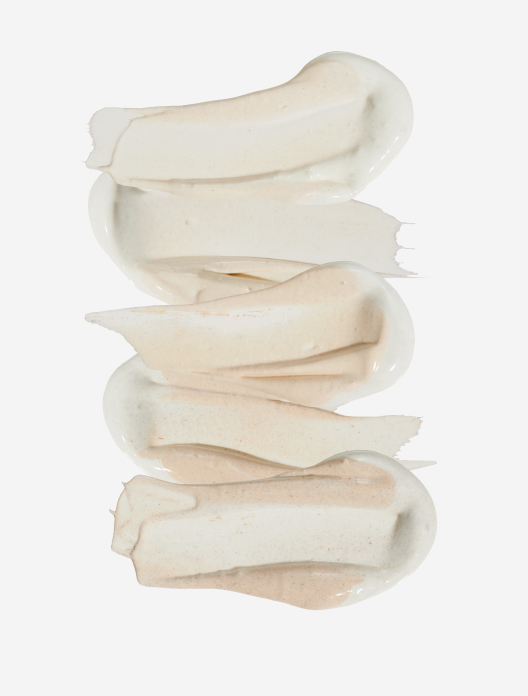
SPF 30 to protect, perfect and give skin a healthy glow
Choose shade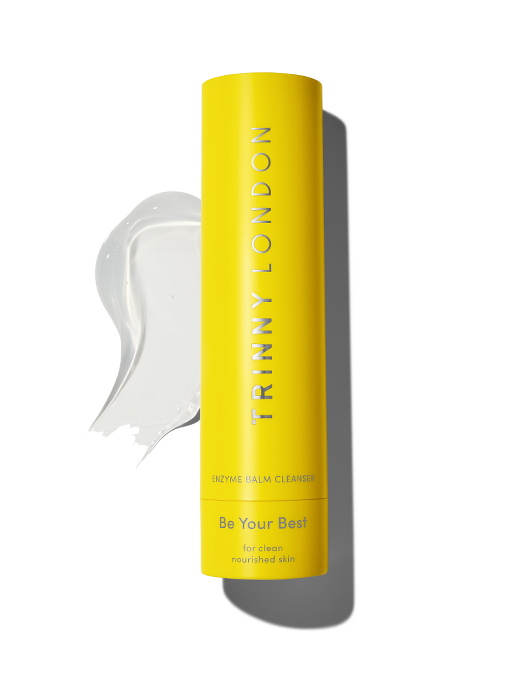
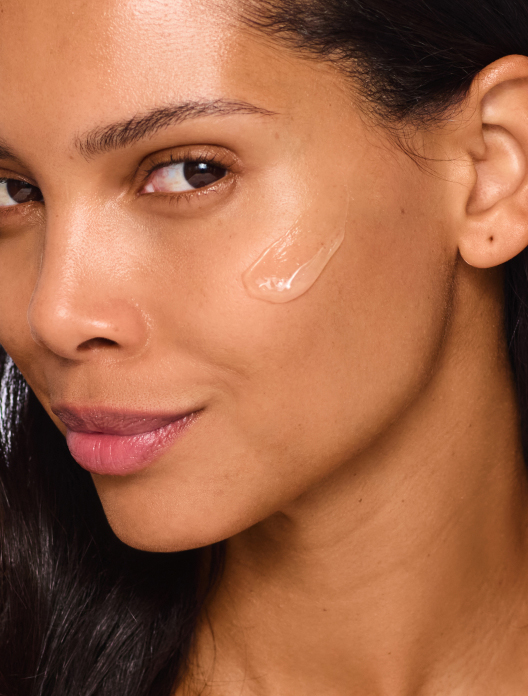
Oil-based transforming cleanser for clean, nourished skin, suitable for all skin types